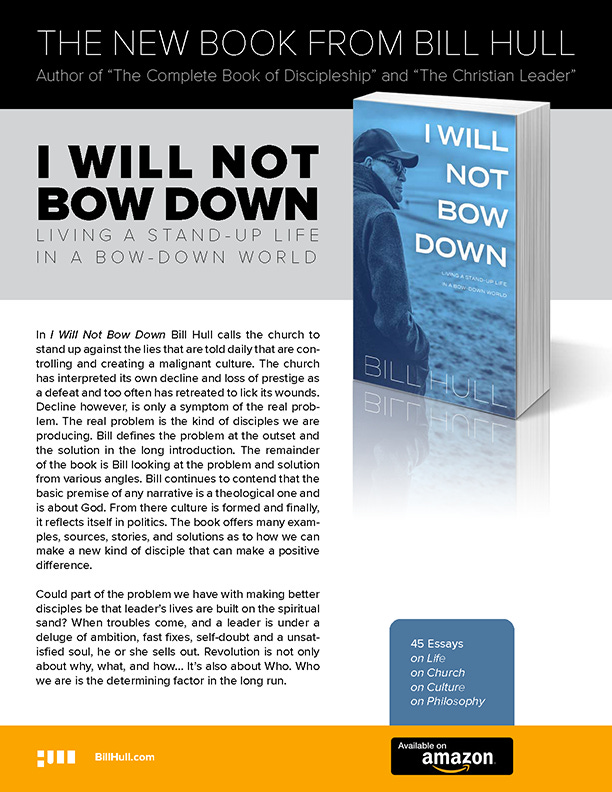It is the just doom of laziness and gluttony to be inactive without ease and drowsy without tranquility. Dr. Samuel Johnson (1709-1784)
With all due respect to Dr. Samuel Johnson’s great wisdom he was renowned for his oversized body and appetites. He was in possession of genius level capacities in his knowledge of the English language. His most famous biographer, James Boswell, chronicled Johnson’s great struggles and personal battles.[1] He was a poet, playwright, literary critic, preacher and lexicographer. He is one of history’s characters who is called Doctor even though he couldn’t continue his studies at Pembroke College, Oxford University because of a shortage of funds. His genius was universally accepted by some of his contemporary greats like Charles Dickens, James Boswell and Edward Gibbon.
His greatest achievement was the completion of the Dictionary of the English Language. The project was given the funds and three years to complete the task. He ran out of money and it took ten years. But it is clearly understood that no one else could have done is as well as Johnson. He was considered the life of the party and a great conversationalist. He struggled mightily with his health which was due to bad luck and bad conduct because he spent many hours in pubs. He comes to mind when I think of excess. I’m sure I am being unfair to some degree, but he fits the image of a patron of an old 18thcentury English pub crammed with patrons of every ilk. You may recall those Tom Jones films portraying men with one hand eating the meat off of a large drumstick, holding a beer in the other, and a wench on his lap.
Gluttony isn’t just about food, even though that is part of it.
Gluttony is taking something good and necessary, like pizza, and eating the whole thing. The Seven Deadly Sins were named by the Catholic Church and exegeted and explained by medieval theologian Sir Thomas Aquinas (1225-1274). Aquinas remains the Catholic Church’s most respected theologian. He influenced a variety of fellow medieval scholars. They broke down eating and drinking into categories. You could eat excessively by demanding too much. You could eat sumptuously by demanding the richest or best foods. You could eat daintily by demanding only the perfectly prepared food. Finally, you could eat impulsively by demanding the food right now.
It is obvious, isn’t it, that the opposite of gluttony is self-control?
Gluttony works much like other addictions—gambling, alcohol, or even now more pernicious addictions like sexually related problems. It has a lot to do with the process of temptation. Dallas Willard’s temptation example was—the Twinkie. In case you have just appeared from the cave you’ve been living in, it is a rectangular yellow cake like object with vanilla crème filling. Ben and Jerry’s fancy ice cream flavors come and go, but the simple, boring vanilla Twinkie is passed on from generation to generation at birthday parties, weddings, and gas stations for almost 100 years. I confess to driving cross-country late at night and stopping for gasoline, grabbing a pack (or two) for a snack, washing it down with a Coke, and driving on. It is tasty, gives you energy, and can even survive war. Twinkie’s are tough—they last.
According to Dallas the problem with the Twinkie is that it lives in the imagination. You can pass by the Twinkie table, but as you walk around the fair or the event, that Twinkie lives in your mind. You crave it, it calls out to you, you must have it. Finally, you grab it. Somehow your imagination—your craving, your lack of self-control positioned your body in front of it and you took it. This happens every day all over the world in millions of minds.
The Bible tells stories about it. Achan comes to mind because he was drawn to the booty of war and took what he craved. What distinguished Israel in war was that they were not allowed to take the personal possessions of the citizens of a conquered nation. God told Joshua that the covenant had been broken and to discover the guilty ones. Everyone knew the covenant and Achan didn’t even argue his case before Joshua. “Achan replied, “It is true! I have sinned against the Lord, the God of Israel. Among the plunder I saw a beautiful robe from Babylon, 200 silver coins, and a bar of gold weighing more than a pound. I wanted them so much that I took them. Joshua 7:20-21 NLT
Joshua’s soldiers went into Achan’s tent and found the buried spoils and brought them to him. Achan, his family, and even his livestock, was stoned to death for his offense. This is, of course, one of those events in the Bible that modern people can’t accept or understand. Some call it a fable, but the total historic exegesis of the passage persuades me that it is an actual event. One must understand the nature of a pre-modern world, its ethics, its procedures, and how God was working through that world. Progressive revelation of God to the human race must be considered.
This is part of what Hebrews 1:1-3 is explaining:
“Long ago God spoke many times and in many ways to our ancestors through the prophets. And now in these final days, he has spoken to us through his Son. God promised everything to the Son as an inheritance and through the Son he created the universe. The Son radiates God’s own glory and expresses the very character of God and he sustains everything by the mighty power of his command. When he had cleansed us from our sins, he sat down in the place of honor at the right hand of the majestic God in heaven. This shows that the Son is far greater than the angels, just as the name God gave him is greater than their names.”
Whether it be ancient more primitive times or the most current high-tech world, the same principles apply. Gluttony is a sin that reveals the inner strength or weakness of a person to exercise self-control.
Gods revelatory context was introduced in Athens to a pagan/secular culture.
“From one man he created all the nations throughout the whole earth. He decided beforehand when they should rise and fall, and he determined their boundaries. His purpose was for the nations to seek after God and perhaps feel their way toward him and find him—though he is not far from any one of us. For in him we live and move and exist. As some of your own poets have said, ‘We are his offspring.’ And since this is true, we shouldn’t think of God as an idol designed by craftsmen from gold or silver or stone. Acts 17:26-29 NTL
This one man of course, is Christ, who is clearly named here in Paul’s sermon, and in his writings in Colossians 1:15-20.
The inner process of temptation or “Twinkie Theology”
“If you think you are standing strong, be careful not to fall. The temptations in your life are no different from what others experience. And God is faithful. He will not allow the temptation to be more than you can stand. When you are tempted, he will show you a way out so that you can endure. So, my dear friends, flee from the worship of idols.” I Corinthians 10:12-14a.
1. Everyone is at risk, common nature, common enemy, common tendency
Paul warns about thinking certain sins can’t get at you. The old saying is succinct, “pride goes before the fall.” The reason is that the same temptations are in front of us daily. The entire human race encounters the same temptation—and that temptation is to want something so badly you will violate your integrity, even all you have, like Achan did, to get it.
William Temple, at one time the Archbishop of Canterbury, spoke of the Solitude Test. It was simple, what do you think about when you don’t need to think about something else? Where do your relaxed thoughts go? He said, “Religion is what you do with your solitude.” What have you programmed yourself to desire or crave—that becomes your god? A career, a person, a dream of more money, or power of some kind?
Another test is what the late Tim Keller called the Unanswered Prayer Test. “God, if you don’t give me this, we are through!” What would it take to get you to leave God? Whatever it is, there is your idol, the object of your worship. It is what you want more than anything—beware, you are vulnerable.
It has been said that the only way our minds can be released from the grip of beautiful object is an even more beautiful object. What is that object?
2. God is faithful
A bit trite you might say. Isn’t that a good slogan on a religious site? Ok, you have a point. But look at the specificity of the promise. “He will not allow the temptation to be more than you can stand.”
God is promising that he will give you the strength, if you ask and want it. Turn now to that Twinkie. It could be that you should eat only one a week, or something quirky like that, but whatever it is, that intense desire can be defeated. A more serious temptation is to abuse yourself or others with irrational behavior with sexual desire that is all consuming. When you think you’re on the brink of giving in, stop and pray and ask God to help you overcome it, run from it, get away from it if you can. Remember that more beautiful object we are looking for? Remember this about Jesus:
“So then, since we have a great High Priest who has entered heaven, Jesus the Son of God, let us hold firmly to what we believe. This High Priest of ours understands our weaknesses, for he faced all of the same testings we do, yet he did not sin. So let us come boldly to the throne of our gracious God. There we will receive his mercy, and we will find grace to help us when we need it the most.” Hebrews 4:14-16 NLT.
The beauty of Jesus is he understands weakness. He stands alone among all religious leaders or proposed gods to our world. Jesus must either be believed or discarded, there is no middle or moderate with Jesus. Either we are all in or not in at all. This is the uniqueness of incarnation, the logos, the logic, and the word from God is the Word Himself. God has spoken with such a profundity that it defies human vocabulary. As John wrote, “we beheld his glory full of grace and truth.” Remember Jesus in Gethsemane? The agony, the pain, the prayer, indeed he understands. The only God who came to us and died for us. And yes, we are guilty, and yes, evil is terrible, and yes, you may be suffering today as you read this. But he understands. He understands our weakness—so go boldly to God—he is gracious, he will help, he will provide a way of escape. That is his promise, he is faithful to be with us and helping us endure.
Christ gave himself for you and for me. Why did he do that? Because he loves us completely, fully, eternally. Because you and I matter. I can’t understand it, I can only embrace it. I heard it said recently that a former glutton attempted to explain why he now could control his appetite. He said he had eaten enough, and he was saving some room for dessert. He went on to say, “I’ve heard that a great feast, the marriage supper of the Lamb, will be taking place in heaven, I am leaving room for dessert.”
Bill Hull
September 2023
PS: This is Jane again. Still no car (since late July), as the police have not given the two insurance companies a police report, and the companies are in some kind of legal hassle. But the good news is that I am driving Bill’s car with ease since a good friend advised me: “Just have to get back up on that four-wheeled horse.” Strangely enough, that advice shocked me back into reality! I am an Okie, you know. Fact vs Truth: fact is I had an accident; truth is I am ok. God provides all I need! Blessings to you who have read this far!
[1] The Life of Samuel Johnson, written in the late 1700s. Published in the United States, 1992, Alfred Knopf Books.
[2] “final days” is understood as the capstone of revelation in Christ. In that Christ can return at anytime. See Matthew 24:14 as a time frame.
billhull.com for info:




